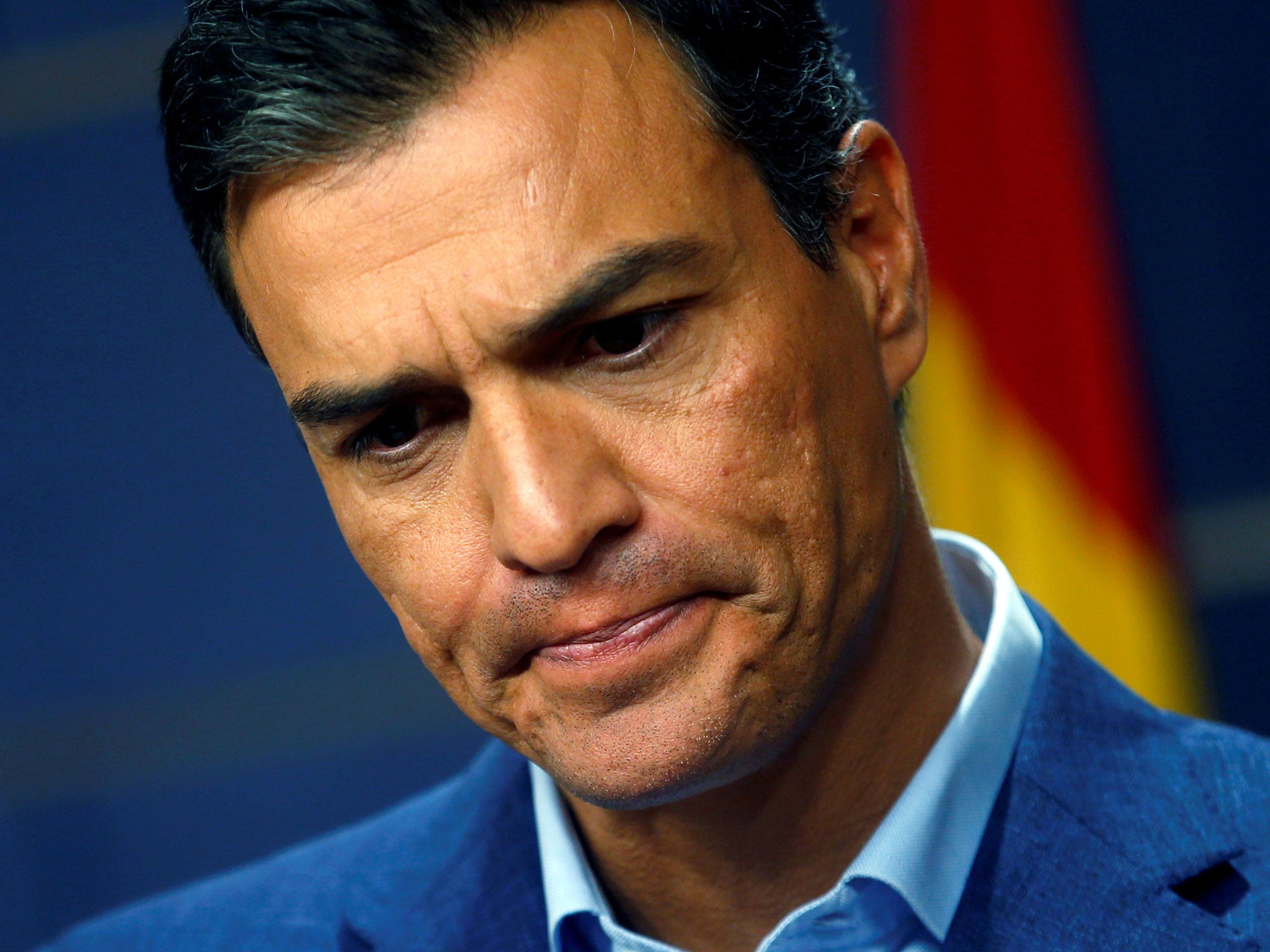Spain's socialists face 'unprecedented' crisis thanks to party leadership struggle
Party's executive committee call for calm as rebels seek to force out leader Pedro Sanchez – with third national election within a year looking likely

Your support helps us to tell the story
From reproductive rights to climate change to Big Tech, The Independent is on the ground when the story is developing. Whether it's investigating the financials of Elon Musk's pro-Trump PAC or producing our latest documentary, 'The A Word', which shines a light on the American women fighting for reproductive rights, we know how important it is to parse out the facts from the messaging.
At such a critical moment in US history, we need reporters on the ground. Your donation allows us to keep sending journalists to speak to both sides of the story.
The Independent is trusted by Americans across the entire political spectrum. And unlike many other quality news outlets, we choose not to lock Americans out of our reporting and analysis with paywalls. We believe quality journalism should be available to everyone, paid for by those who can afford it.
Your support makes all the difference.Spain's leading opposition socialist party, PSOE, is in crisis after nearly half of its executive board resigned in a rebellion against leader Pedro Sanchez.
A stand-off between the socialists and the conservative People's Party (PP) – which won the most votes but fell short of a majority in two consecutive elections in December and June – has frustrated repeated attempts to form a government.
With the clock counting down to a possible third national election in December, the socialist rebels hope they can oust Mr Sanchez and seek ways to break the deadlock, including a potential abstention in a confidence vote to let acting Prime Minister Mariano Rajoy stay in power.
On Wednesday, the 17 rebels resigned from PSOE's 38-strong executive committee, which was already down three members, and called for Mr Sanchez, who oversaw the party's worst election result in June, to stand down.
On Thursday, Mr Sanchez met with the remainder of the board, which announced it would press ahead with a federal committee session on Saturday to propose a leadership election on 23 October – in what is seen as a clear challenge to Mr Sanchez’s critics. The board called for calm during what it described as “unprecedented moments” for the 137-year-old party.
The rebels have said the committee, the party's top administrative level, now must be dissolved and a form of caretaker administration ushered in. A party conference would then have to pick a new leader in a few weeks.
“The leadership of this party is gone, half of them plus one have resigned,” Veronica Perez, one of the rebels, said on Thursday outside the party's Madrid base. “They can shield themselves and entrench themselves, but it is a question of dignity,” Ms Perez, the party's representative in Seville, said of Mr Sanchez and his remaining supporters.
The rebels say they want to force Mr Sanchez out before the party assembly meeting, with Mr Sanchez likely to win a potential leadership contest with support from the grassroots.
Mr Sanchez has faced heavy criticism from some of the PSOE's most influential figures and the press. El Pais newspaper, which traditionally has supported the socialists, called him an “unscrupulous fool” in an editorial on Thursday and demanded he resign to save the party.
Parties' failure to form a government has left Spain deep in uncharted legal territory. The socialists' two warring factions have interpreted the party's legal framework on whether Mr Sanchez's leadership remains legitimate in their own ways and it is not clear which will prevail.
The Socialists' number two, Cesar Luena, told a news conference on Wednesday night that Mr Sanchez, who has stayed out of the public eye since the apparent coup was launched, would remain head of the party until a congress was called to name a new committee.
Parties have until 31 October to form a government or a new election will be called, prolonging the uncertainty that has a cast a shadow over Spain's economic recovery and left the country increasingly adrift from its international partners. The Bank of Spain, however, hiked its growth forecast for 2016 on Thursday.
The turmoil at the centre of Spain's national government has also caused support for independence in Catalonia to rally. The regional head, Carles Puigdemont, said on Wednesday that his government would hold a referendum with or without Spanish consent next September.
Reuters
Join our commenting forum
Join thought-provoking conversations, follow other Independent readers and see their replies
Comments